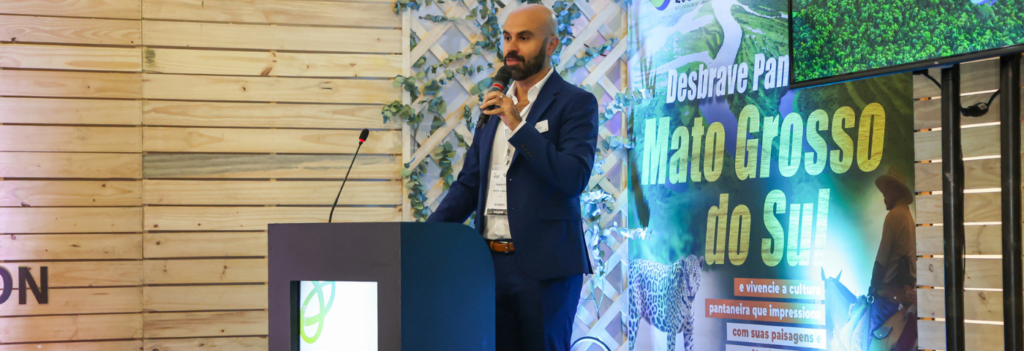*By Gustavo Pinto
Responsible tourism is about transform tourist destinations into better places to live and better places to visit, in that order. The phrase I always mention in my presentations may seem cliché, but it is what makes the concept more tangible to professionals in our industry.
Looking back over a decade of walking with the theme alongside WTM Latin America, it is possible to see that the evolution of the debates is also related to the use of the term that calls individuals and companies to take responsibility. Responsible tourism has contributed to opening up a range of practical solutions and bringing a diversity of themes, formats, people and businesses to programming for a matter that is also related to semantics. Telling the entrepreneur that he needs to adopt sustainable development practices, not infrequently, makes him lose himself in this concept that is impractical, palpable – it is difficult to reach a conclusion that “yes, now my business is sustainable”. The result in the travel and tourism sector is that it ends up getting stuck with the obvious, such as leaving a sign advising the guest not to request a change of bed and bath linen every day to save water or to encourage waste management.
In an economic environment in which 90% of companies have a small business profile, the travel and tourism industry still today (and especially in Brazil) has few sources of technical training to make operational issues related to sustainable development for small entrepreneurs. WTM Latin America has played a key role in this regard, both with the proposal of panels on the subject since its first edition in 2013 and with the launch of the Responsible Tourism Award in 2021.
Our programming for thematic panels on responsible tourism has visibly undergone a great evolution. Initially, we started from the influence of the international market in the selection of the themes debated in the theaters and the change of these discussions under the bias of the generation of external demand. Gradually, the themes were redirected and we started to see panels in which the protagonism is oriented towards the sustainable development of the destinations and host communities, related to native peoples and ancestry, actions for equity, inclusion and diversity in companies, conservation of local biodiversity, among others.
On the other hand, the global themes in the responsible tourism panels – climate change and alternatives to single-use plastic – are subjects that will always be debated because they are intrinsically related to our industry. The sector is responsible for 8 to 11% of greenhouse gas emissions and is arguably the largest consumer of plastic service sector in the economy. Here we have a long road ahead and little evolution of robust impact for a change in consumer behavior that is sufficient to solve these problems in the short term – remembering that we only have the short term to put an end to these issues, as is already exhaustively debated and known when dealing with global warming. The opposite of a quick fix to reducing global warming is a disastrous impact on the tourist destinations in which we operate and love so much.
Another important aspect in the programming of responsible tourism themes is the urgent need to encourage the travel and tourism sector to monitor its results for the correct measurement of the evolution of the path towards sustainable development. The proposed approach always concerns the first step, the beginning of a journey that is free of financial investments, the development of complex plans and even professionals specialized in the subject. There is no need for a complete sustainability plan, but it’s essential to do what you can and measure the progress of this journey from the first implementation.
We have brought this message over the years and it ends up making the concept more tangible for the small entrepreneur. I always tell the story of an entrepreneur of a lodging facility in Caraíva (BA) who implemented a sensational action to raise awareness about the problem of waste management in this very vulnerable community and highly impacted by tourist activity. She set the Wi-Fi password at her inn to “naobebalongneck” [Do not drink long neck], with a message discouraging the consumption of drinks in glass containers. Thus, it sensitizes the visitor to environmental issues of the destination and acts to reduce the disposal of glass which, unlike aluminum, is not destined for recycling centers and remains without waste management in Caraíva. And for this action, the entrepreneur didn’t have to spend a penny.
This is just one of the many examples that we see year after year and highlight so that it can serve as a stimulus in WTM Latin America’s programming. We want to take the weight of sustainability off the shoulders of tourism professionals and show that it is easy, cheap and that it makes sense from a commercial point of view to take responsibility for the impacts of their economic activity. In this way, we act to encourage the entrepreneur to start acting towards a future he wants. And change will come.
The opinions expressed in this text are the author’s opinion and do not necessarily reflect the position of WTM Latin America.
